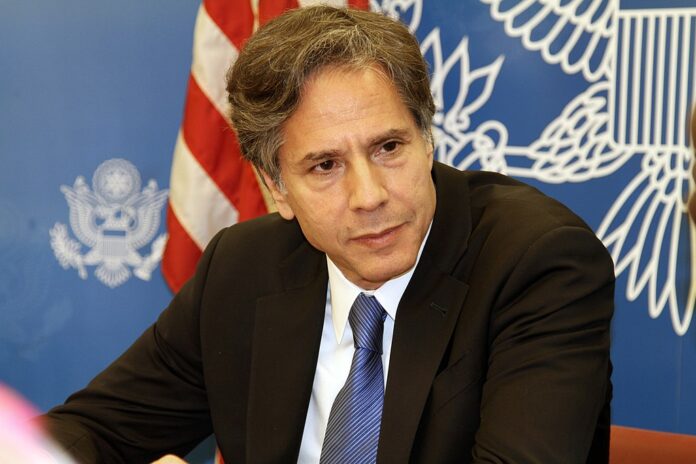US Secretary of State Antony Blinken presses Hamas to finalize a ceasefire and hostage release deal, amidst new demands and international mediation efforts
US Secretary of State Antony Blinken urged Hamas to finalize a ceasefire and hostage release agreement for Gaza, expressing frustration over the group’s recent requests for numerous changes. Speaking in Doha after discussions with Qatar’s Prime Minister Sheikh Mohammed bin Abdul Rahman Al Thani, Blinken emphasized the need to end the haggling and close the deal. The US, along with mediators Qatar and Egypt, continue to work towards finalizing the agreement.
Hamas indicated readiness to engage positively but insisted on a permanent ceasefire and a full Israeli withdrawal from Gaza. While Israel has not publicly commented on Hamas’s response, an anonymous official described it as a rejection of the proposal. Prime Minister Benjamin Netanyahu has yet to publicly endorse the plan but reaffirmed his commitment during a meeting with Blinken in Jerusalem.
Embed from Getty ImagesAdding to the diplomatic pressure, the UN Security Council passed a resolution supporting the ceasefire proposal. Blinken criticized Hamas for delaying the process by proposing additional changes nearly two weeks after initial discussions. While he did not specify the changes, a statement from Hamas reiterated their demand for a complete halt to aggression and withdrawal of Israeli forces.
An anonymous Israeli official claimed that Hamas altered significant parameters and rejected President Joe Biden’s proposal for a hostage release. Despite these setbacks, Blinken remains optimistic about bridging the gaps in negotiations. Qatar’s Prime Minister emphasized the necessity of concessions from both sides.
Blinken also highlighted the importance of post-conflict planning for Gaza, with forthcoming proposals for governance, security, and reconstruction. The Israeli military’s campaign in Gaza began after a significant Hamas attack on southern Israel on October 7, which resulted in numerous casualties and hostages.
President Biden’s proposed plan involves three phases: an initial six-week ceasefire with partial hostage releases and Israeli withdrawal from populated areas, followed by the release of remaining hostages and a permanent cessation of hostilities, and finally, the return of deceased hostages’ remains and the commencement of Gaza’s reconstruction. Israeli leadership remains sceptical, with far-right ministers threatening to collapse the governing coalition if the US-backed proposal proceeds.
Analysis:
Political: The ceasefire negotiations underscore the intricate dynamics of international diplomacy. The US, Qatar, and Egypt play pivotal roles in mediating between Israel and Hamas, highlighting the geopolitical significance of the Middle East conflict. The internal political pressures within Israel, particularly from far-right ministers, complicate Netanyahu’s position, reflecting the deep divisions and the balancing act required to maintain his coalition government.
Social: The humanitarian crisis in Gaza, exacerbated by prolonged conflict, calls for immediate action. The ceasefire and subsequent phases of the proposed plan aim to alleviate the suffering of civilians. This situation highlights broader societal debates on human rights, the ethics of warfare, and the responsibilities of governing bodies towards civilian populations. The social fabric of Gaza has been severely disrupted, with widespread trauma and displacement requiring substantial rehabilitation efforts.
Racial: The Israeli-Palestinian conflict has significant racial dimensions, rooted in historical grievances and identity politics. The ceasefire negotiations bring to the forefront issues of racial tensions and the need for mutual recognition and coexistence. The rhetoric and policies on both sides often reflect deep-seated racial biases that need to be addressed for lasting peace.
Gender: Women and children are disproportionately affected by the conflict in Gaza. The ceasefire and humanitarian assistance plans must prioritize their protection and support. Gender-specific challenges, such as access to healthcare, education, and safety, need comprehensive strategies to ensure the well-being of all affected populations.
Economic: The economic devastation in Gaza necessitates a robust reconstruction plan. The proposed phases include significant humanitarian assistance and long-term economic development projects. International support will be crucial in rebuilding infrastructure, creating jobs, and restoring basic services. The economic revival of Gaza is essential for achieving lasting peace and stability in the region.
